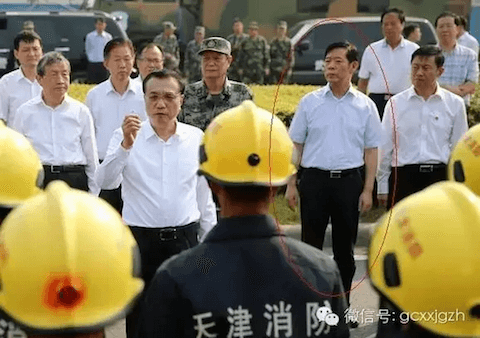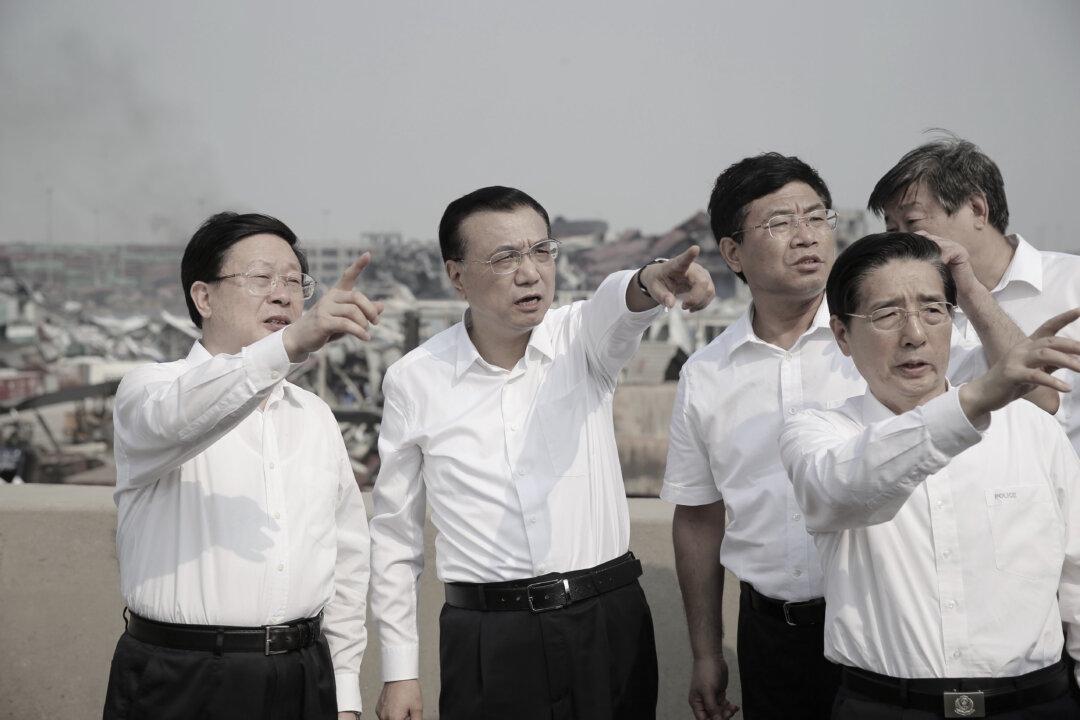In the days after a massive, fiery blast rocked the northern port city of Tianjin in one of China’s deadliest industrial accidents, Yang Dongliang, the man responsible for heading disaster investigations, was seen discussing rescue efforts on site and visiting the families of the injured. He was even spotted in the photos of the Chinese premier speaking with firefighters published by state-run Xinhua News Agency.

Yang Dongliang (circled in red), the former head of the State Administration of Work Safety, was present when Chinese premier Li Keqiang (C) spoke with firefighters in the Tianjin on Aug. 16, 2015. Screen shot/WeChat




